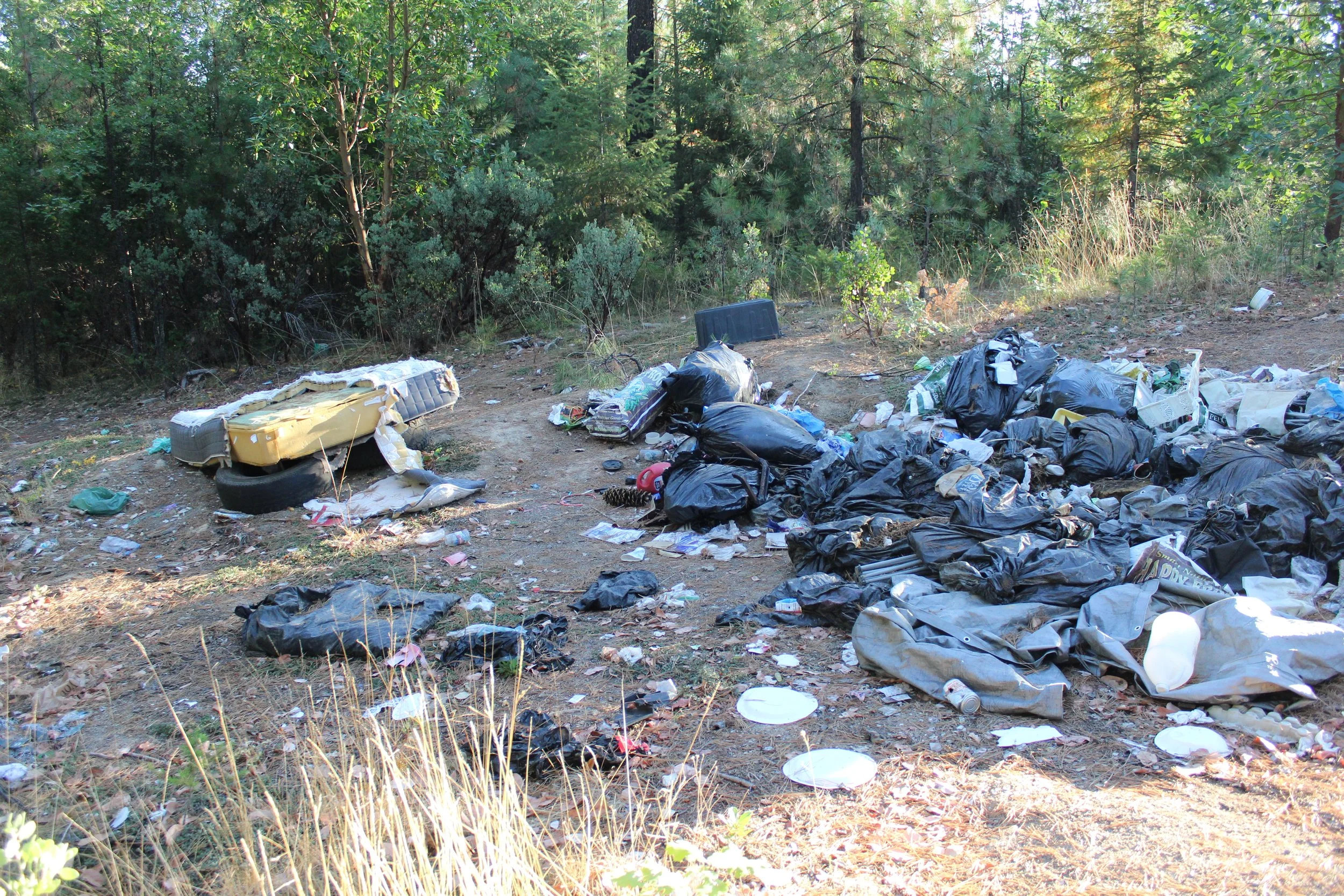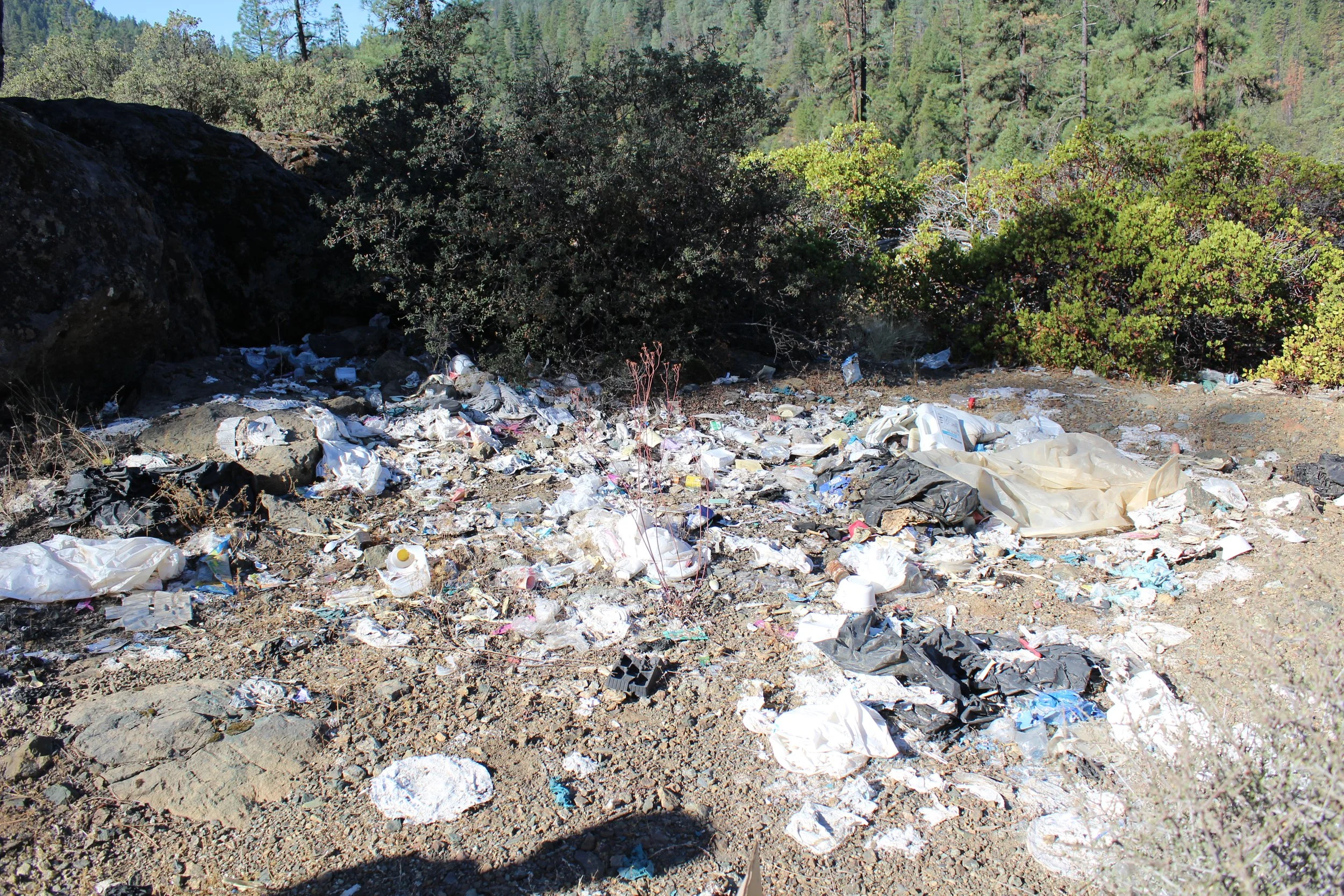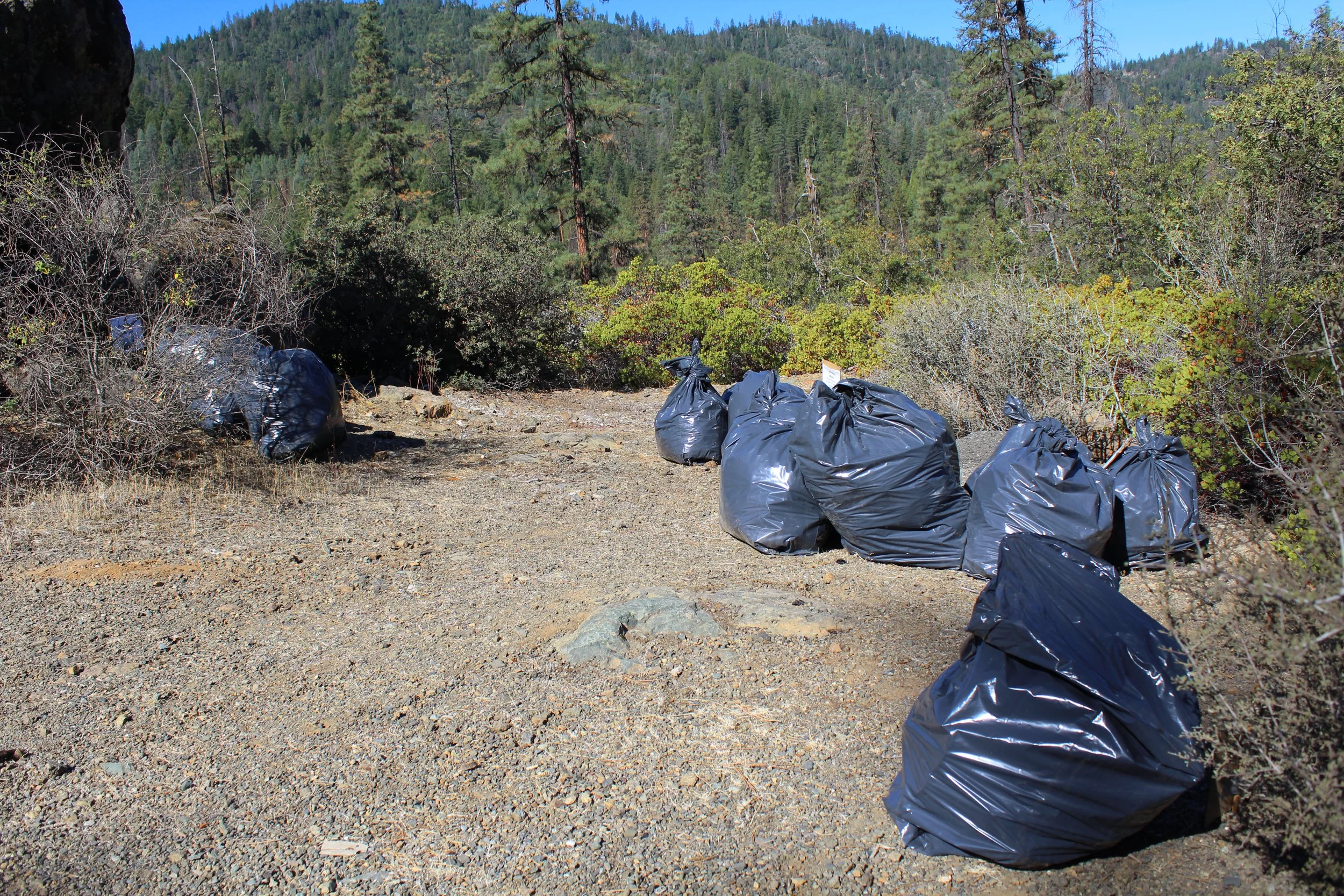Cannabis Restoration Initiative Removes 33 TONS of Trash from Public Lands in Two Years!
The Watershed Center’s Cannabis Restoration Initiative, which has operated for just two years, has completed a truly staggering amount of work in that timeframe. So far, the project has made tremendous headway cleaning up USFS lands in the Post Mountain/Trinity Pines region, removing waste and infrastructure from illicit grows–particularly near Junction City, Helena, and Willow Creek–and working with private landowners to remediate solid waste issues on individual properties throughout the county. In this blog we take a deep dive into waste removal throughout the Post Mountain/Trinity Pines area.
The first and longest volunteer clean-up day took place at the largest dump site in the area, about a half-acre in size. The area has since been revegetated with native plant species by the Botany Crew.
In order to complete this work, four Watershed Center staff members trained as HAZWOPER (Hazardous Waste Operations and Emergency Response) technicians. The 40-hour training through the Occupational Safety and Health Administration prepared staff to safely manage dangerous substances present at cleanup sites. These include poisonous pesticides, explosive and flammable fuels, and unidentified liquids and powders. These HAZWOPER technicians are the first on-scene to clear sites of hazardous materials. Once cleared, sites are safe for volunteers and other staff to pitch into the clean-up efforts.
The Cannabis Restoration team has hosted multiple clean up days in Post Mountain/Trinity Pines. These volunteer events were augmented by work with contractors we paid to haul away large items, like abandoned cars, RVs, and travel trailers. To date, these efforts have removed a whopping 33 TONS of refuse (66,000 pounds) from public lands in the area. “No Dumping” signs have been installed at the sites in English and Hmong to dissuade further littering, and information directing residents to transfer station sites throughout the county has been distributed.
“These volunteer days took a ton of planning and coordination,” Emma Carlson, Cannabis Restoration Program Coordinator, explained. “We needed enough trucks, trailers, and staff to haul materials away. Contractor trash bags, trash grabbers, gloves, hand sanitizer, and hand washing stations were provided at each event. I made sure local transfer stations were expecting us, and anything that couldn’t be disposed of in Trinity County had to be hauled all the way down to Shasta County. We are extremely grateful to all of the volunteers who not only made these cleanups successful, but significantly multiplied and expedited our impact.”
Illegal dumping has been a longstanding problem in this area for several reasons. First of all, the region is remote and the closest transfer station is a 45-minute or 1-hour drive away. Secondly, it is expensive to haul trash to a transfer station, both in regard to the actual dump fees and the cost of fuel. These factors combined with the tremendous amount of growth Trinity Pines has experienced over the last decade, have exacerbated dumping issues in the area.
Two separate sites were tackled during the most recent volunteer cleanup day. Here we see before and after pictures demonstrating the effort of the community members who turned out to help.
“When the Green Rush began we knew that, as with other booms, there would eventually be a crash. We’d have to be there to help clean up the hardest hit areas,” Nick Goulette, Co-Executive Director of the Watershed Center, commented about the new initiative. “Along with the staff, vehicles, and equipment to get this work done, our mission is to promote healthy landscapes and communities, so stepping up to remediate these particular impacts was a natural fit.”
Turnout was especially robust at the September 28th, 2024 clean-up!
In addition to the “No Dumping” signs, the Watershed Center Botany Crew has also revegetated the sites with native plants to improve habitat and forest health. Our U.S. Forest Service partners also plan to place large boulders in certain locations to further dissuade dumping. Through our outreach efforts, educational materials, and on-the-ground rehabilitation efforts, we are partnering with residents and other agencies to support stewardship. Many of the volunteers who helped clean up trash expressed a desire to live in a beautiful mountainous forest, believing they could be the change they wanted to see in their community and inspire others to haul their waste to appropriate facilities.
“All told, we had 36 generous people come out to help us clean over the course of the three volunteer days, and 35 of those were residents of Post Mountain/Trinity Pines,” Emma stated. “It was inspiring to see so many people come forward to offer hours of their time to make a massive, positive impact in their community. I think we stand a great chance of turning the tide against illegal dumping. The support is definitely there.”
Thank you to our volunteers, partners, and funders, particularly the U.S. Forest Service, California Department of Fish and Wildlife, Integral Ecology Research Center, Buddy’s Auto Center, Inc., and Wiebe Truck’n Towing. Our forests and waterways are healthier as a result of this collective impact!






